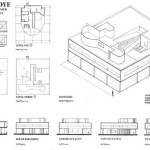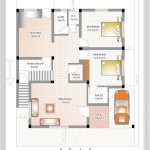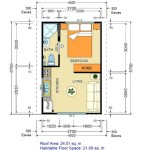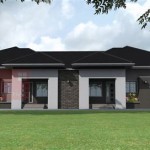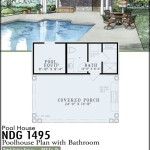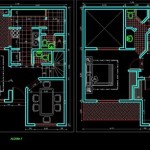Design Your Own House Plan: Essential Aspects to Consider
Designing your own house plan can be a thrilling experience, allowing you to create a home that truly reflects your unique style and needs. However, navigating this process requires careful planning and consideration of several essential aspects. This guide will provide comprehensive insights into the key elements involved in designing your dream home.
1. Determine Your Needs and Preferences
A successful house plan begins with a clear understanding of your functional requirements and aesthetic preferences. Start by assessing your lifestyle, family size, and future needs. Consider the number of bedrooms, bathrooms, living spaces, and any special features you desire, such as a home office or a mudroom. Define your preferred architectural style, interior design palette, and ambiance to create a cohesive design.
2. Choose the Right Site
The location of your home significantly influences its design and living experience. Factors to consider include topography, soil conditions, sun exposure, access to utilities, and proximity to amenities. A well-chosen site can enhance the potential of your home and provide a satisfying outdoor space.
3. Establish a Realistic Budget
Before embarking on the design process, determine a realistic budget that encompasses all aspects of construction, from materials to labor. Consider the cost of land, permits, fees, and any additional expenses. A well-defined budget will guide your design decisions and prevent overspending.
4. Hire a Qualified Architect
While you may have design ideas, it is highly recommended to hire a qualified architect. A professional architect possesses the technical expertise, building code knowledge, and design skills to transform your vision into a functional and safe home. They can assist with space planning, structural design, and ensure compliance with regulations.
5. Plan for Energy Efficiency
In today's eco-conscious era, incorporating energy-efficient measures into your house plan is crucial. Consider using sustainable materials, installing energy-efficient appliances, and implementing passive design techniques. These strategies will not only reduce your environmental footprint but also save you money on utility bills.
6. Optimize Space and Storage
A well-designed home maximizes space utilization and provides ample storage. Plan for open floor plans, built-in storage solutions, and multi-purpose areas that serve multiple functions. Think vertically by incorporating shelves and cabinets to keep clutter off the floor.
7. Create a Seamless Indoor-Outdoor Connection
Modern homeowners crave a seamless transition between indoor and outdoor living spaces. Design your house plan to include outdoor areas such as patios, decks, or courtyards that extend the living space and connect you with nature. Large windows, sliding doors, and skylights can further blur the boundaries between indoors and outdoors.
8. Focus on Curb Appeal
The exterior design of your home is just as important as the interior. Create a visually appealing facade with thoughtful landscaping, a welcoming entrance, and architectural elements that complement your surroundings. A well-designed exterior will enhance the overall appearance of your home and make a positive impression on visitors.
9. Consider Aging-in-Place Features
If you plan to stay in your home for the long term, incorporating aging-in-place features is wise. These features, such as wider doorways, accessible bathrooms, and single-story living, can make your home comfortable and safe as you get older.
10. Get Constructive Feedback and Seek Inspiration
Throughout the design process, seek constructive feedback from family, friends, or a design professional. Their input can provide valuable insights and help you refine your ideas. Visit model homes, browse magazines, and explore online resources for inspiration and to stay abreast of the latest trends.
Designing your own house plan is a complex but rewarding endeavor. By carefully considering the essential aspects outlined above, you can create a home that meets your unique needs, reflects your style, and provides a comfortable and enjoyable living environment for years to come.

Design Your Own Home House Designing Homes

From Sketch To Reality How Design A House You Ll Love

Create Floor Plan

Design Your Own House Floor Plans Must See This Acha Homes

Make Your Own Blueprint How To Draw Floor Plans

Impressive Make Your Own House Plans 1 Design Floor Free Home

House Plans And Design

From Sketch To Reality How Design A House You Ll Love

3d Home Design Architect For Your Own House Free Planner Homify

Make Your Own Blueprint How To Draw Floor Plans

